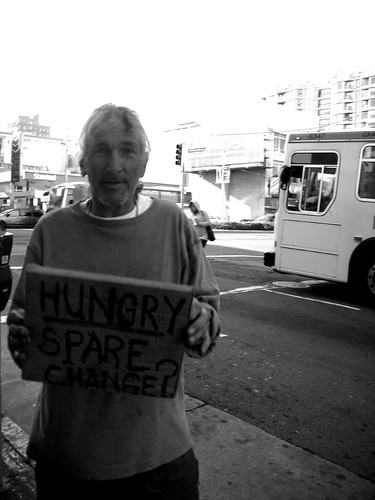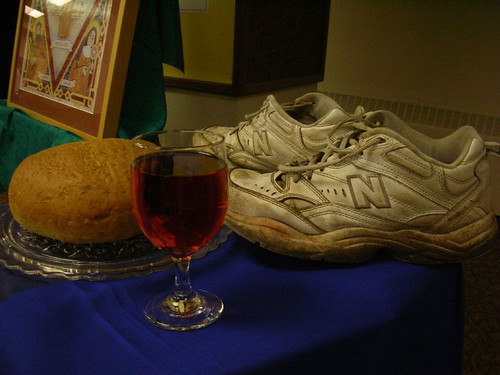Matthew 21:33-46
This is a very bloody parable indeed - well that is if you take it only as it is written here in Matthew. Surely Jesus and those who talk about this story were well aware that it is actually an illusion to a very well known story in Isaiah 5.And surely if everyone in the conversation knew that Jesus was talking about the story in Isaiah, they would have also known that in the very next Chapter God(dess) sends a prophet to come and remind people that they are to maintain justice and care for the poor and widows. This is the same work Jesus was doing. While and strange and bloody way to say it, Jesus is using the Jewish stories that he loves to proclaim that he is a prophet who has come to bring justice for the poor.
The Good News is that we are not being called to plan, lobby or create new ways to make the world more just. Isaiah 56, calls us to: "Maintain justice, and do what is right, for soon my salvation will come, and my deliverance be revealed."
Did you notice the word "maintain"? God(dess) has already established justice, it is our job to maintain what God(dess) has done/declared. More bluntly, it's our job to try not to screw up G0d(dess)'s justice. This is much different than asking ourselves: What am I doing to create justice in the world? Instead we ought to ask ourselves: What we are doing to oppress others, to prevent our neighbor from having their daily bread or from being able to walk a step closer to God(dess)
I wonder how the world would change if we tried to work on our own inner oppressor. Namely, if we stopped judging others and telling them how they should be more just, and we work on being more just ourselves. This is afterall the true path to nonviolence.

Of course the story doesn't end there. Isaiah 56 says this is exactly what God(dess) is doing, by revaluating the ways God(dess) is oppressing others. In verse three it says: "Do not let the foreigner joined to the Lord say, 'The Lord will surely separate me from [God(dess)'s] people'; and do not let the eunuch say, 'I am just a dry tree.'"
This text is specifically talking about those the scriptures say are cut off from God(dess). Here God(dess) reverses course and declares they are in fact NOT separated from God(dess). This models the transformation in the book of Hosea when "Not my people" become "My people" and is also repeated in Ruth's love song to Naomi.
While used more broadly in other texts, here in Isaiah 56 it is explicetly tlaking about about the eunuchs, transgender individuals and those who are gay, lesbian, bisexual and queer. It means that none of these groups should have to prove they are worthy of God(dess)'s love because of how they love or transform their body. Rather all other Christians ought to be reaching out to them and giving them pastoral care and sharing words of grace with them to remind them that they are not seperated from God(dess).
It seems we've gotten it all backwards these days! Isaiah is clear God(dess) is more concerned with our faithfulness and our desire to maintain jusitice.
And though it is through the lens of Isaiah that we can understand Christ, this week's Matthew text is just one more of the many times that Jesus is proudly proclaiming the "the Lord God[(dess)], who gathers the outcasts of Israel" and proclaims that G0d(dess) "will gather others to them besides those already gathered." (Isaiah 56:8)
Proper 22A/Ordinary 27A/Pentecost +21


